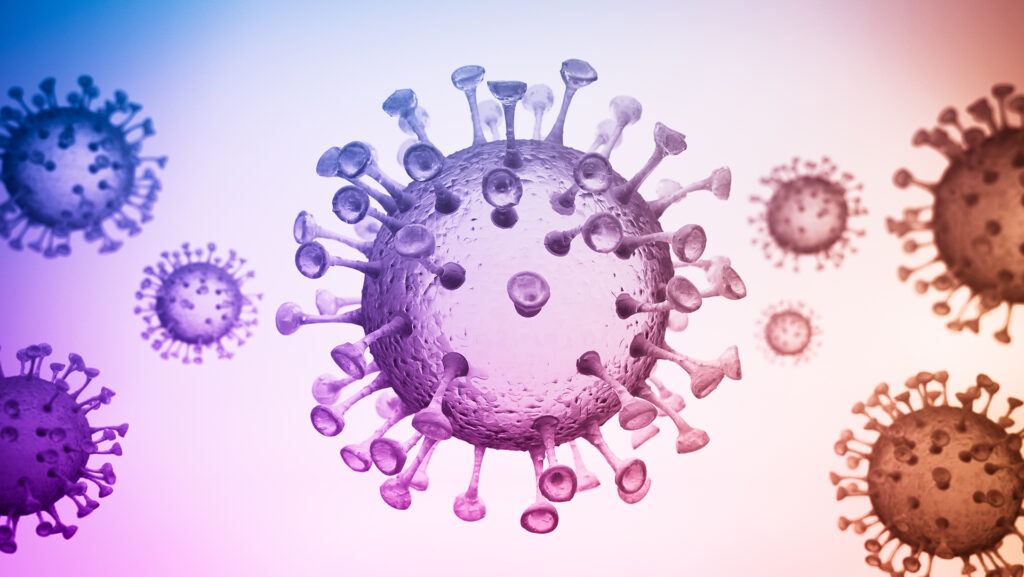- May 16, 2024
Understanding and Responding to COVID-19 Variants in Pakistan
Introduction
The ongoing COVID-19 pandemic presents a dynamic challenge, with the emergence of new variants adding complexity to global efforts towards control and prevention. Pakistan, like many other countries, has witnessed the circulation of various COVID-19 variants, necessitating a multifaceted approach to mitigate their impact.
Unveiling the Variant Landscape
Several COVID-19 variants have been identified in Pakistan. Notably, the Delta variant (B.1.617.2) has garnered significant attention due to its increased transmissibility and potential for causing severe illness. Public health authorities maintain close vigilance on variants of concern (VOCs) and variants of interest (VOIs) to guide public health measures.
Clinical Spectrum of Variant Infections
Symptoms associated with COVID-19 variants can vary in severity. While some individuals may experience mild illness or be asymptomatic, others may develop complications requiring hospitalization. Common symptoms include fever, cough, shortness of breath, fatigue, muscle aches, and loss of taste or smell. Early medical attention is crucial if symptoms worsen or persist.
Origins of COVID-19 Variants
Mutations in the genetic material of the SARS-CoV-2 virus during replication lead to the emergence of variants. Factors like increased transmission, immune evasion, and selective pressure from interventions like vaccination can contribute to specific variant prevalence. Continuous genomic surveillance is vital for monitoring viral evolution and identifying new variants.
Prevention Strategies
- Vaccination: Vaccination remains the cornerstone of COVID-19 prevention, offering significant protection against severe illness, hospitalization, and death, even against variants. Pakistan’s ongoing efforts focus on expanding vaccination coverage and accessibility.
- Masking: Wearing masks in indoor settings and crowded outdoor spaces is essential to reduce variant transmission. Opting for well-fitting, multi-layered masks enhances effectiveness.
- Hand Hygiene: Frequent handwashing with soap and water for at least 20 seconds or using alcohol-based hand sanitizer (at least 60% alcohol) is crucial for preventing transmission.
- Physical Distancing: Maintaining physical distance from others, especially in poorly ventilated environments, minimizes variant spread. Opting for outdoor activities or virtual gatherings when possible is recommended.
- Gathering Guidelines: Adhering to public health guidelines on gatherings helps control spread. Limiting size, prioritizing outdoor events, and considering vaccination status of attendees are essential measures.
Management Strategies
- Isolation: If you test positive or suspect exposure, isolate yourself from others to prevent transmission. Designate a separate room and bathroom if possible.
- Testing: Prompt testing is essential for early detection, contact tracing, and containment measures. Options include PCR and rapid antigen tests. Seek testing if you experience symptoms or have been in close contact with a positive case.
- Medical Consultation: Consult a healthcare provider if you develop symptoms or have concerns. Depending on severity and risk factors, they may recommend home monitoring, in-person evaluation, or telehealth consultations. Early intervention can improve outcomes.
- Public Health Recommendations: Staying informed about local public health guidelines is vital. Following recommended preventive measures like vaccination, masking, and physical distancing helps control variant spread in your community.
Treatment Approaches
- Rest and Hydration: Prioritizing rest and adequate hydration is essential for recovery. Rest allows your body to conserve energy and heal, while hydration prevents dehydration and supports overall well-being.
- Symptom Management: Over-the-counter medications like acetaminophen (paracetamol) or ibuprofen can help manage fever and associated discomfort. Consult a healthcare provider before using any new medication.
- Medications for Specific Symptoms: Depending on your symptoms, your healthcare provider may recommend additional medications like cough suppressants, decongestants, antihistamines, or pain relievers. Always consult a healthcare professional before starting new medications.
- Oxygen Therapy: In severe cases with respiratory distress, supplemental oxygen therapy may be necessary. Close monitoring by healthcare professionals is essential to ensure adequate oxygen levels and respiratory support.
- Antiviral Therapies: Research is ongoing to explore antiviral medications that can reduce viral replication and improve outcomes. Some medications like remdesivir have shown promise in certain cases.
Conclusion
Understanding the evolving landscape of COVID-19 variants in Pakistan is crucial for implementing effective preventive and management strategies. By adhering to public health recommendations, getting vaccinated, and practicing preventive measures, individuals can help control variant spread and protect themselves and their communities.


